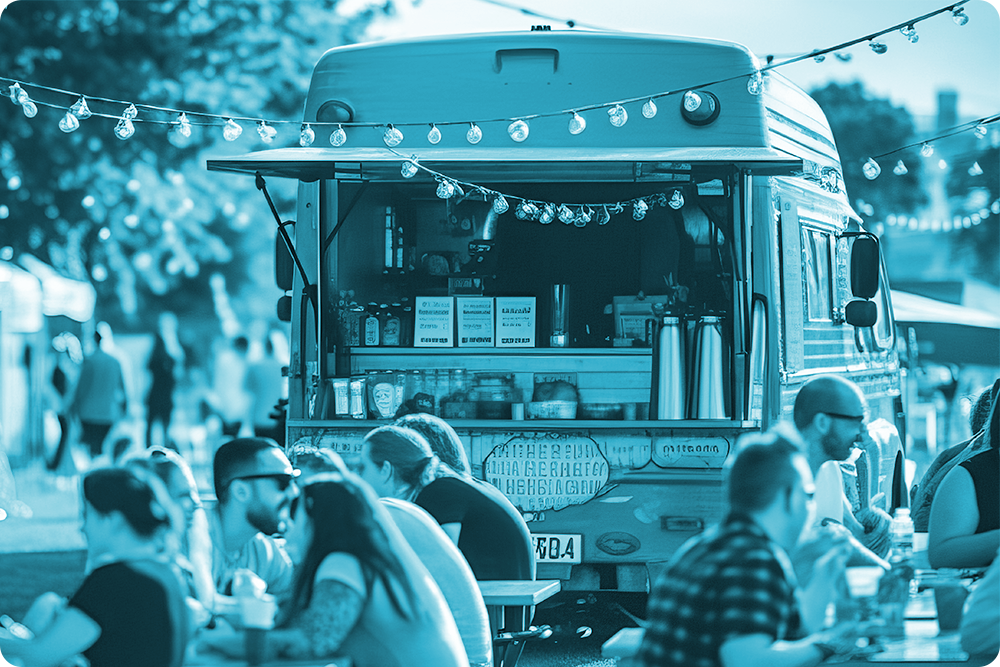Meaningful Vision’s analysis of the UK’s foodservice market reveals the most influential factors driving footfall this summer were more numerous promotions, the Euro 2024 football tournament and the weather – all of which helped offset the negative impact on trade of inflation and rising prices.
Inflation and Promotions: A Balancing Act
On a positive note, foodservice price inflation, calculated by studying the change in price over time of a particular menu item, stabilised at 6% after having risen almost 10% at the beginning of the year. However, the number of promotions in the market continues to grow, increasing by 30% in June and July compared with a year ago – a reminder that challenging economic conditions persist, with consumers feeling the pinch and restaurants making a big effort to entice customers.
The Office for National Statistics reports the UK’s household saving ratio increased from 7.9% in the first quarter of 2023 to 11.1% in the first quarter of 2024. Against a background of increasing pressure on the cost of living, weakening consumer confidence and slower growth in consumption, it appears UK households are increasingly reluctant to dip into their savings to cover costs.
Compared with 2023, the UK foodservice industry saw a modest growth in consumer traffic of 1.2% in June 2024 and 0.5% in July. However, these seemingly unremarkable numbers conceal a more dynamic story, shaped by the influence of international sports events and a spell of good weather.
Euro 2024: A Boost for the Industry
With a busy summer schedule of sport – from tennis at Wimbledon to the Paris Olympic Games – the highlight for industry fortunes was Euro 2024, particularly England’s run to the final. Pubs and bars, traditionally a popular place for football supporters to meet and watch games, experienced a 7% year-on-year increase in visitors during the month-long tournament.
Uneven Impact: Regional Variations and Consumer Choices
This trend was unevenly distributed across the UK. England, as whole, saw more than 8% growth in visits, but London fell below this nationwide average. Scotland demonstrated the smallest increase, while Northern Ireland and Wales reported the largest growth in footfall. Interestingly, the Republic of Ireland mirrored these trends, with pub visits rising by 7% during tournament matches.
While pubs enjoyed a profitable period, casual dining establishments experienced a 4% decline in footfall when compared with the same period in the previous year. This shift suggests people in greater numbers were opting to watch games at home, potentially opting for takeout or delivery instead of dining out.
Fast food brands also saw a reduction in the number of in-store visits, although partially offset by an increase in delivery orders from football fans gathering at home to watch matches. Many venues employed special deals, themed menus and food promotions to capitalise on the football frenzy. Notably, official UEFA sponsor JustEat played a prominent role with enticing promotions like 25% off food and free delivery during England’s match days.
Weather Matters: Sunny Days and Rainy Nights
The weather also plays an important role in determining the growth or decline in footfall during the summer months. For example, June 2024 was an average of three degrees cooler than 2023, with 5% more rain and with a third less sunny days. July, by contrast, was less rainy than in the previous year, with 10% more sunny days.
An analysis of data gathered over the last three years identifies a correlation between the frequency of foodservice visits and the weather, with the number of sunny days in a given month impacting on the bottom line. Pubs benefit greatly from good weather, and among the various formats represented in the panoply of UK foodservice, pubs enjoy the greatest increase in footfall during sunny days. July’s sunshine amplified the effects of the sports events, driving even larger volumes of traffic. Interestingly, fast-food and casual dining restaurants were impacted by weather in the opposite way as they enjoyed more visitors in rainy weather.
Leveraging Events and Weather for Success
The Euros served as a powerful reminder of how events can shape consumer behaviour. The contrasting fortunes of pubs and fast-food delivery with casual dining highlights the importance of strategic marketing initiatives to UK foodservice businesses. Operators looking to benefit from the increased spending generated by sporting contests like Euro 2024 should be well prepared in advance, with targeted promotions, themed menus and new products to drive customer engagement. Deals that are attractive to consumers can help support traffic to restaurants in bad weather, while open terraces allow them to compete with pubs on sunny days.
Read more on how major sporting events change consumer pattern in our previous report.
